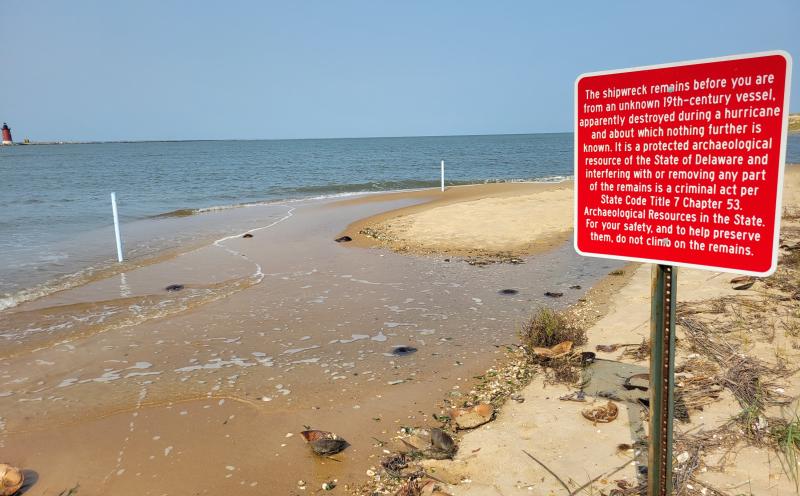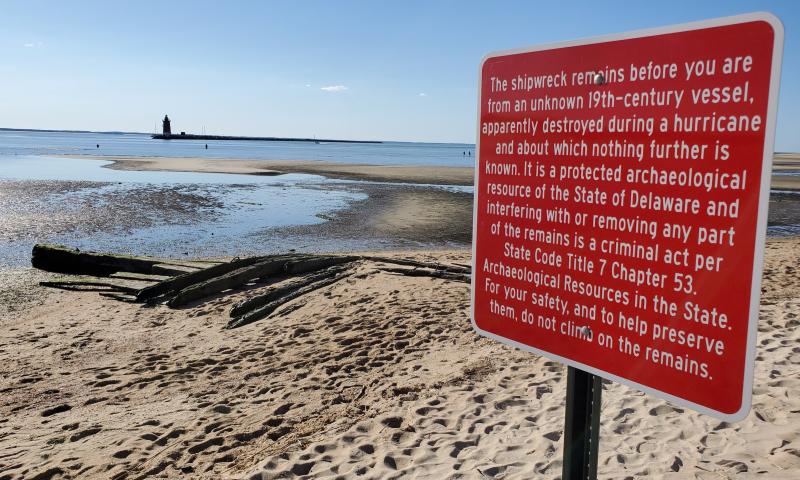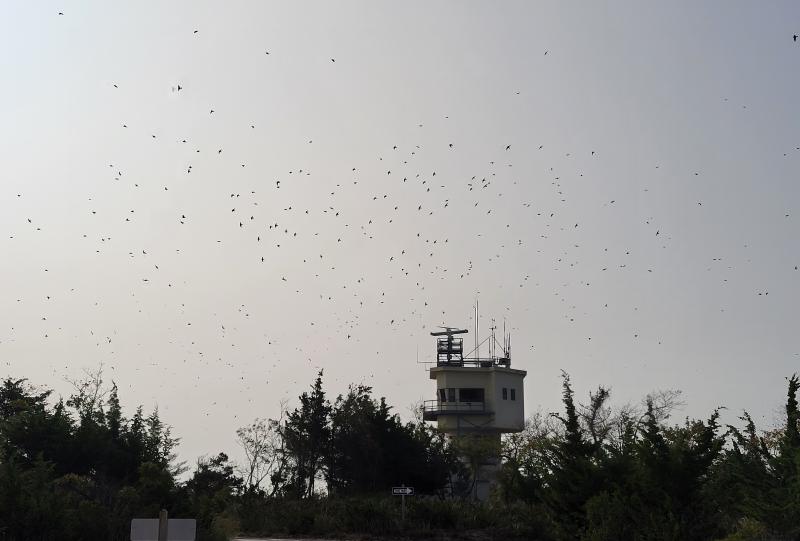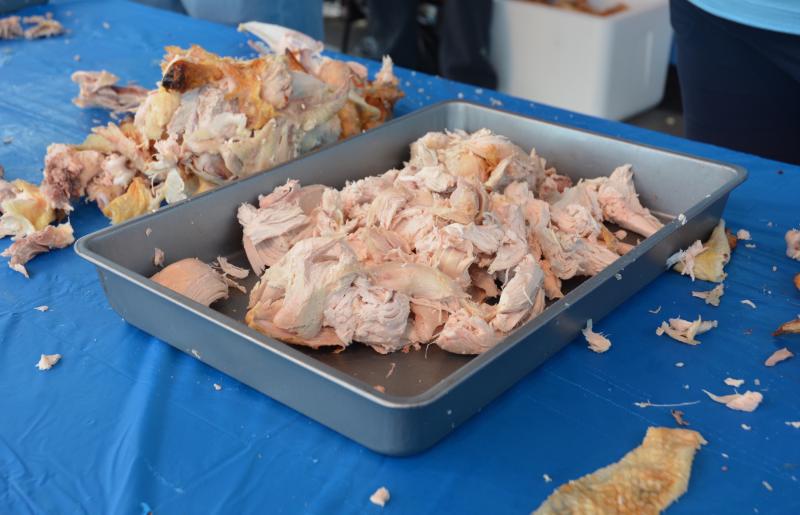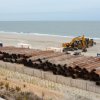Shifting sands, a host of sparrows and pickin’ chicken
The Point at Cape Henlopen State Park reopened for the winter season Oct. 1. My family and I were out there by 9:30 a.m. that day to make the one-mile trek.
While the general shape always remains the same, the first time around The Point each the season is fun because details change. This year, the most notable detail, for me anyway, is that the 19th century shipwreck on the bayside of The Point is now covered in sand. Three years ago, enough of the old timbers and 6-inch-long fasteners were exposed that the state felt compelled to install a sign explaining the scene. The sign says the vessel was apparently destroyed during a hurricane, but nothing else is known.
I’m amazed the whole thing is now covered, so I reached out to the Delaware Geological Survey to get an expert’s opinion on how that could be.
Dan Warner, DGS analyst, said capes like Cape Henlopen are dynamic systems that evolve. In this case, he said, Cape Henlopen is growing over time from sand that erodes elsewhere and is transported and deposited due to the local currents, sea-level rise and tidal patterns.
Warner said the evolution of a cape is a net process, and sand deposits may both ebb and grow over time. Storms also play a role, he said.
“Depending on how a storm hits the region, it may scour sand from the cape or it may dump a bunch of sand that was eroded elsewhere,” said Warner, in an email Oct. 9. “So, the shipwreck may well be exposed in the future only to be buried again depending on storm surges and ongoing coastal processes.”
Warner followed up my question with one of his own.
“Are beach nourishments coinciding with years of increased sand deposition at the cape?” he asked. “We had several big nourishment projects recently. All that sand eventually erodes, and it has to end up somewhere.”
I’m definitely not smart enough to know the answer, but it’s interesting to think about.
The other notable thing that happened on our walk took place before we headed to the oceanside trail, which is almost always how we begin. There were a few hundred swallows flying about, acting like starlings. They were swooping and diving in unison. It looked like they were going after bugs, but we didn’t see any. Maybe they were mad about having to share the space after a summer free from humans.
Picking chickens is a true Sussex skill
I went to the Delmarva Chicken Festival last weekend. A Sussex County staple for decades, the festival returned after a decade-long absence to celebrate the 100th anniversary of the broiler chicken. I took some photos at the festival, but personally I was most interested in the chicken-picking contest. I wanted to see how my picking skills – honed in Maine, but learned from a multi-generational Sussex Countian – held up. I’ve probably picked at least one chicken a month since I left college two decades ago. In my living-by-myself days, it was every week.
The contest was simple enough – pick as many cold chickens as possible in three minutes. Bones, skin and other jiggly parts were not allowed.
I’d say the average amount of chicken picked was a little more than two-and-a-quarter pounds. I don’t know if I would have done any better than the contestants I saw, but I know I would have held my own. I will give the contestants credit for one thing: not eating any of the chicken chunks while they were picking it. If I had that same level of will power, we’d have a whole extra dinner’s worth of chicken to eat.
Joke of the Week:
There will be a lot of jazz music in the Cape Region this weekend and I’ll be out taking photos. As always, send jokes to cflood@capegazette.com.
Teen 1: My parents never let me listen to jazz or classical music growing up.
Teen 2: Why not?
Teen 1: Too much sax and violins!
Chris Flood has been working for the Cape Gazette since early 2014. He currently covers Rehoboth Beach and Henlopen Acres, but has also covered Dewey Beach and the state government. He covers environmental stories, business stories and random stories on subjects he finds interesting, and he also writes a column called Choppin’ Wood that runs every other week. He’s a graduate of the University of Maine and the Landing School of Boat Building & Design.














